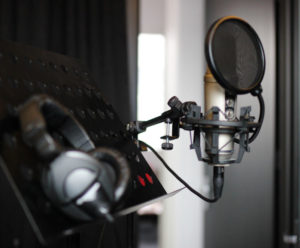You’ve done all the right things to get started in Voice Over.
Attended courses/ workshops and/or had some professional coaching/ mentoring and along the way putting in LOTS of practise, recording anything you could get your hands on. You feel like you’re ready to really put yourself out there and start pitching for some paid work so you jump onto some casting websites and start auditioning.
For any independent, self-recording voice over artist this is the hard part. You feel like you’re nailing the brief for each audition but you’re just not landing jobs. Here are some thoughts on why that may be.
Firstly, remember that Voice Over is competitive. There are a LOT more people doing it now, and while there is also a much greater variety of work you could be part of a very large pool of talent pitching for the same job.
Are you really ready? Don’t directly compare yourself with other Voice Over Artists but DO listen to them. Are you confident with your reads? How many times do you need to read a script to get a great take? Are you just reading the words and hoping they like the sound of your voice or are you truly delivering the meaning and feeling of the script. A voice that’s easy on the ear is a start but a voice that can really sell a product or make the listener feel something and take them on a journey is better.
Does your recording sound like it was done in a cupboard?
Yes. That’s a serious question.
As someone who regularly casts Voice Over Artists who record in their own studios I need to let you know this – If I can hear the walls in your recording it’s a deal breaker.
What I mean by this is that if you’re recording space isn’t acoustically treated, the sound of your voice will bounce off the walls (and other hard surfaces) and be captured by the microphone. An extreme example of this is when you sing to yourself in the bathroom and your voice comes booming back at you thanks to all those lovely tiled surfaces. Great for singing to yourself, not so much for recording.
When faced with the choice of voice talent who have the right vocal age/tone for a script and skills to deliver it. If the requirement is they are recording in their own studio, the best recording sound will win.
It’s not as hard to get right as you think.
Firstly, unless your home studio solution is one of the commercially available standalone booths, you’ll never achieve anything close to sound proof. I hear a lot of people talk about sound proofing but what they are really talking about is sound deadening, acoustically treating the space to absorb sound that would normally be reflected off walls and other hard surfaces.
Jump onto eBay and search “Studio Acoustic Foam”. A few packs of these on walls and the ceiling will make a big difference to your recording space and they’re not that expensive. Add to that plenty of soft furnishings, even stuffed toys and your rooms is going to sound much less ‘roomy’. You can achieve the same in a walk-in robe that has plenty of clothes hanging up in it also.
The key here is to experiment both with what you can do to change the sound of the room, but also in where you have your microphone placed in the room and even what type of microphone you’re using. For example a mini-shotgun microphone such as a Sennheiser 416 is much more forgiving than a larger diaphragm Rode NT1 in a less than perfect room as the 416 has a much tighter pickup pattern.
If noise is your problem then mitigation is your solution, not post-production. This may mean you need to record at times when there is less external noise (such as traffic) or turning the heating/cooling off while recording to eliminate ambient sounds. While there are some excellent noise removal tools available you need to understand that when they remove the noise they can also degrade the quality of your voice recording. If the person receiving your recording is an experienced sound engineer they will want a completely raw, unprocessed recording – so no noise reduction applied either.
Now that I’ve laid all that out for you it’s also important to know that it also works the other way. You can have a $5000 Microphone and a StudioBricks Voice Booth but if you don’t have the Voice Over Skills to go with the professional hardware you’re not getting your investment back any time soon.

